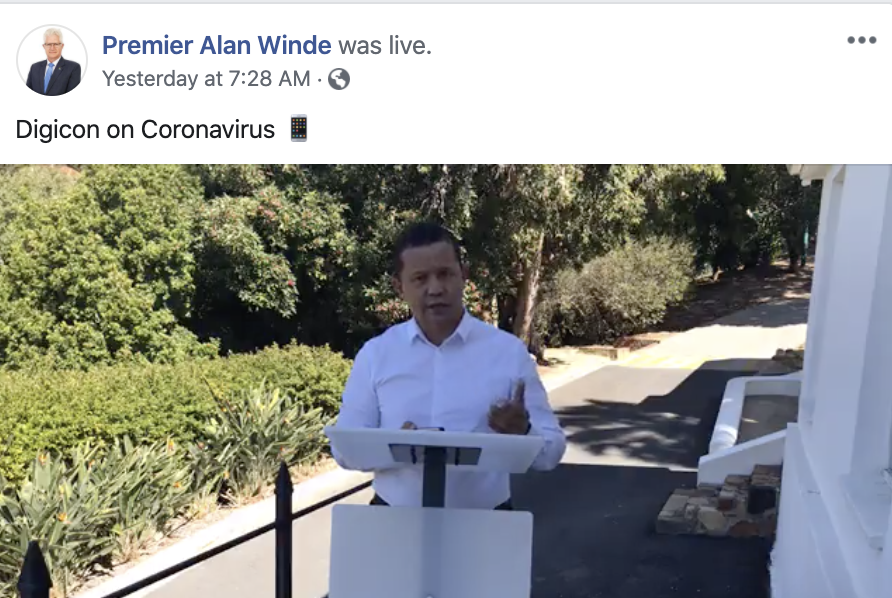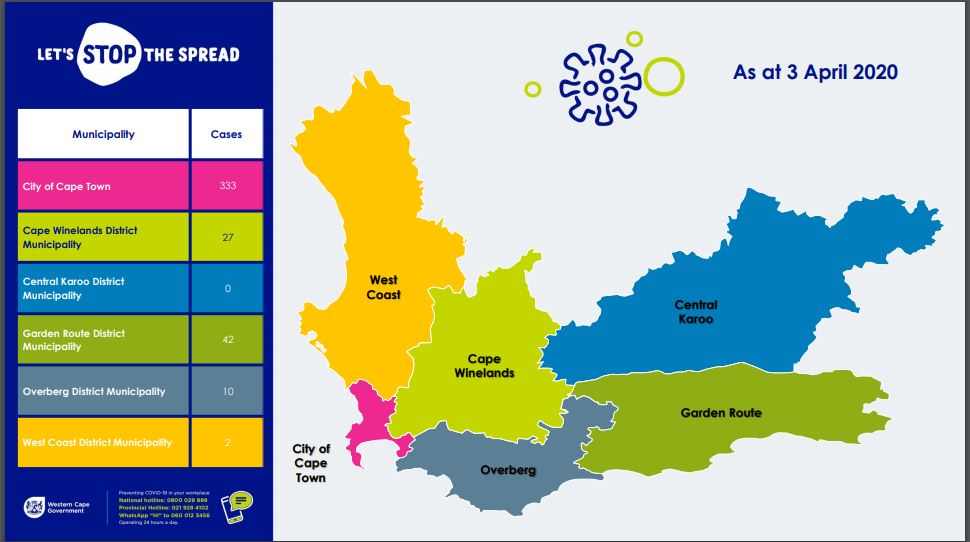By Ainsley Ash
MAIN IMAGE: A graphic issued by the Western Cape government showing the spread of Covid-19 cases in the province.
The Western Cape Government has issued an appeal for medical volunteers to sign up to help fight the spread of COVID-19 as it gears up for a rise in case numbers in coming weeks.
On Friday the government issued a statement explaining that the pre-existing burden of disease among the province’s population combined with the COVID-19 pandemic were increasing pressure on medical facilities. It called on doctors, nurses, pharmacists, pharmacy assistants and emergency medical service personnel who were not already employed by the Department of Health to sign up online to offer their services.
The request came as the number of confirmed coronavirus cases in the province rose to 418, with 25 people in hospitals, seven of them receiving intensive care.
On Thursday, Western Cape Premier Alan Winde and health officials took to Facebook for a live presentation to discuss the province’s response to COVID-19.
“We have got enough hospital beds, enough ICU beds and enough quarantine facilities right now,” Winde said. “But we’ve got to be preparing for what the impact is going to be in a week, two weeks, and two months’ time?”
While the province’s numbers are currently low, Western Cape Head of Health Dr Keith Cloete said that the numbers of locally transmitted cases, hospitalisations, and ICU patients was expected to continue to increase.

Cape Town has been the epicenter of the spread of local transmissions with 333 of the 418 reported cases residing in the Cape Town metropolitan area. Before the government’s request for volunteers, over 100 students at the University of Cape Town had already begun volunteering to run a local COVID-19 hotline.
Members of the UCT Surgical Society who opted to volunteer have been classified as emergency medical personnel, giving them the necessary permissions to travel to and from the Tygerberg Hospital Disaster Management Centre where the hotline is located.
This week, the national Health Department will begin to conduct mass community screenings and testing to track and prevent the spread of local transmissions. According to Cloete, community health workers and NGOS will carry out these preventative efforts, beginning with vulnerable communities in the Cape Town Metro.




